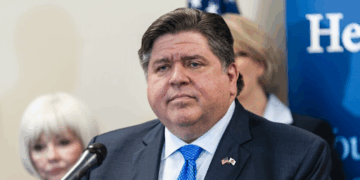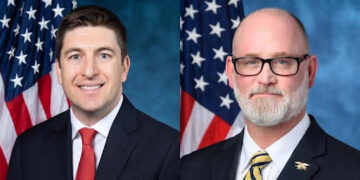During a recent appearance at the Milwaukee Press Club, Eric Hovde took a strong stance on the issue of lead pipe replacement, positioning himself as a leader in ensuring Milwaukee’s water safety. “The amount of lead pipes in this country is very small, but I think we should get rid of all of them,” Hovde asserted, signaling his commitment to eliminating this lingering public health concern.
Hovde’s comments come on the heels of President Joe Biden’s announcement that the Environmental Protection Agency (EPA) will provide $2.6 billion in funding to replace lead lines across the country, a key component of the Bipartisan Infrastructure Law. Hovde expressed his support for leveraging these federal dollars to address Milwaukee’s remaining lead pipes, ensuring that no community is left vulnerable to lead contamination in its drinking water.
The EPA’s recent rule mandates that water systems identify and replace lead pipes within the next 10 years. The funding is part of a larger $26 billion initiative over five years, aimed at addressing aging infrastructure and improving water safety. The EPA also launched a $25 million competitive grant program to further support lead pipe replacement efforts.
U.S. Senator Tammy Baldwin helped secure $83.3 million in federal funding to help replace hazardous lead pipes across Wisconsin. The funding, distributed through the Environmental Protection Agency’s Drinking Water State Revolving Fund, will support efforts to ensure safe drinking water for families throughout the state. Baldwin highlighted the disproportionate impact of lead pipes on communities of color and the long-term health risks to children, emphasizing the importance of this funding to address both public health concerns and create jobs. With Wisconsin designated as a Lead Service Line Replacement Accelerator by the EPA,
Milwaukee contains 44% of the state’s estimated lead water service lines, according to a 2023 Wisconsin Policy Forum report. The village of Shorewood has an even greater share, with 82% of its water lines containing lead. Shorewood officials are planning to replace their lines over the next two decades. Milwaukee has already replaced 6,321 lead service lines since 2018 as part of its long-term effort to remove nearly 70,000 known lead lines in the city, a process expected to take 20 years.
Milwaukee anticipates receiving $30 million from the state’s $74.1 million in lead service line replacement funds in 2024. However, financial constraints are only part of the challenge. Milwaukee also faces hurdles in administering such a large volume of projects, requiring coordination between water main replacements, paving projects, and property owners. With a plan to replace 2,200 lines in 2024 and more in subsequent years, the city may consider ordinance changes to further accelerate progress and ease the burden on homeowners.
By championing the removal of lead pipes elected officials are taking a proactive approach to ensuring the health and safety of Milwaukee’s residents.

































